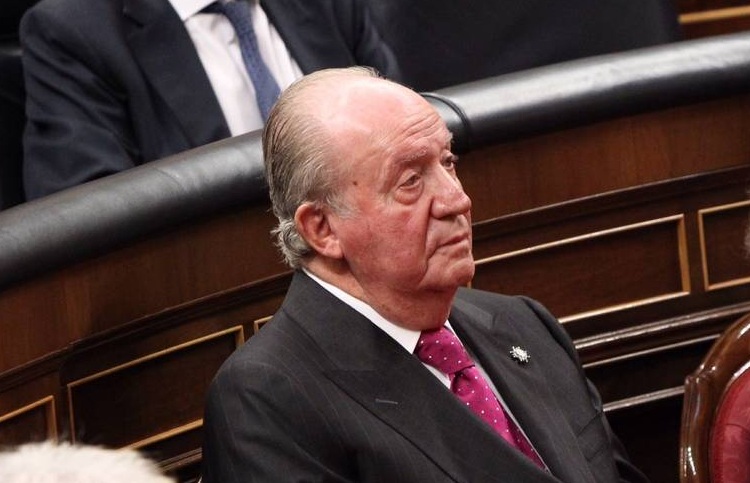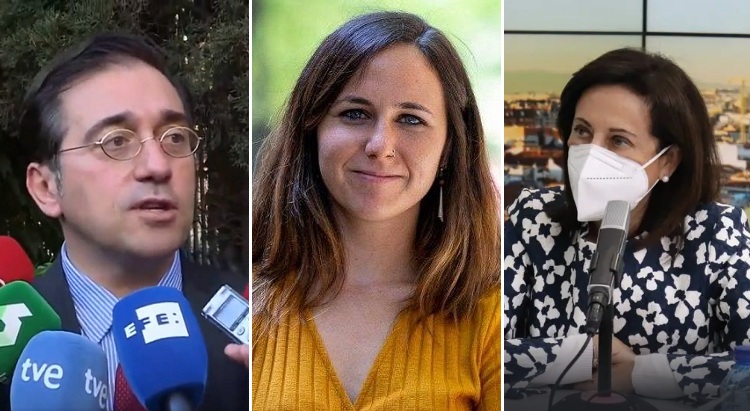Eduardo González
The President of the Government, Pedro Sánchez, does not plan any meeting with the King Emeritus during the working trip he will make tomorrow to the United Arab Emirates, where he will try, above all, to attract the interest of the powerful Emirati investment funds in the Executive’s Recovery Plan.
Sánchez will leave for Dubai today accompanied by the Minister of Foreign Affairs, José Manuel Albares; the Minister of Industry, Trade and Tourism, Reyes Maroto; the Secretary of State for Trade, Xiana Méndez; the President of the CEOE, Antonio Garamendi; the president of the Spanish Chamber of Commerce, José Luis Bonet; the president of COFIDES, José Luis Curbelo; and the heads of a dozen Spanish companies (Indra, Barceló, Grupo San José, TSK, Técnicas Reunidas, Airbus España, Asisa, Escribano, Acciona and Duro Felguera, among others).
The main reason for the trip, whose agenda will take place tomorrow, is to participate in the celebration of Spain Day at the Dubai World Expo. Initially, there had been speculation that King Philip VI would preside over the event, but finally it was decided to choose the head of the Executive, in the midst of the debate on the possible return to Spain of the King Emeritus, who has been living in Abu Dhabi as an expatriate since August 2020.
According to government sources, the presence of the King’s father has not affected the agenda, which was designed some time ago, and no meeting of Pedro Sánchez or the rest of the official delegation with Don Juan Carlos, who has not seen his son since he left Spain, is planned. Precisely, the King Emeritus himself assured this past weekend to journalist Carlos Herrera, from COPE, that he intends to return to Spain when the appropriate circumstances arise so as not to create “any instability” for his Felipe VI, with whom he remains “in contact”.
The visit -the first by a Spanish Prime Minister since the one made by José Luis Rodríguez Zapatero in 2011- will have a dual political and, above all, economic character. In the morning, Sánchez will hold a meeting with the Emir of Dubai and Prime Minister of the United Arab Emirates, Sheikh Mohammed, and in the afternoon he will travel to Abu Dhabi to be received by Sheikh Khalifa bin Zayed bin Sultan Al Nahayan, current President of the United Arab Emirates and Emir of Abu Dhabi.
At the end of both meetings, the two governments will issue a joint political statement. In addition, the working visit will allow the signing of a long list of bilateral Memoranda of Understanding on a wide range of topics, such as cybersecurity, industry, education, universities, health, organ transplantation or COVID best practices.
Investment funds
In any case, the real reason for the Spanish delegation’s trip is economic. As he has done with other countries in the region, Pedro Sánchez’s main objective is to attract the interest of powerful investment funds in the Emirates in the Recovery Plan.
The Emirates has three of the world’s leading investment funds. One of them is Mubadala, Abu Dhabi’s sovereign wealth fund, which manages assets of up to 230 billion euros and is involved in projects in around 50 countries. Precisely, during the trip a Memorandum of Understanding will be signed between COFIDES (the state trading company in charge of providing medium and long-term financing to private projects) and Mubadala to identify investment opportunities related to the Recovery Plan.
In addition, Pedro Sánchez will inaugurate in Dubai a business forum organized by ICEX to address investment opportunities for Spanish companies in the Emirates, in sectors such as water, infrastructure, sustainability, agrotechnology, tourism and hydrogen. Likewise, and within the same objectives, the official visit will allow the conclusion of the negotiations for the reciprocal protection of investments agreement, which began in 2003, and once concluded, the text will still have to be approved by the European Commission for its signature and subsequent ratification.
The United Arab Emirates is currently in the midst of a process of economic diversification to reduce its dependence on oil, which still generates a third of its GDP. For this reason, its government is particularly interested in attracting foreign investment, which represents a good opportunity for Spanish companies in sectors such as renewable energies, transport, air traffic and tourism. The Emirates is the world’s third largest crude oil producer and has the second largest GDP in the region, after Saudi Arabia, and the third highest per capita income (PPP), after Kuwait and Qatar.







